Filter by
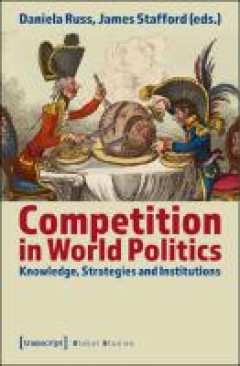
Competition in world politics : knowledge, strategies and institutions
The »return of great power competition« between (among others) the US, China, Russia and the EU is a major topic in contemporary public debate. But why do we think of world politics in terms of »competition«? Which information and which rules enable states and other actors in world politics to »compete« with one another? Which competitive strategies do they pursue in the complex environme…
- Edition
- -
- ISBN/ISSN
- 9783839457474
- Collation
- 306 p.
- Series Title
- -
- Call Number
- 300 RUS c
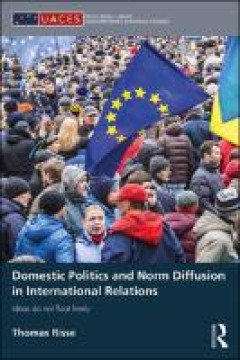
Domestic politics and norm diffusion in international relations : ideas do no…
This book collects Thomas Risse's most important articles together in a single volume. Covering a wide range of issues – the end of the Cold War, transatlantic relations, the "democratic peace," human rights, governance in areas of limited statehood, Europeanization, European identity and public spheres, most recently comparative regionalism – it is testament to the breadth and excellence o…
- Edition
- 17
- ISBN/ISSN
- 9781315623665
- Collation
- x, 328 p. : ill.
- Series Title
- -
- Call Number
- 327 RIS d
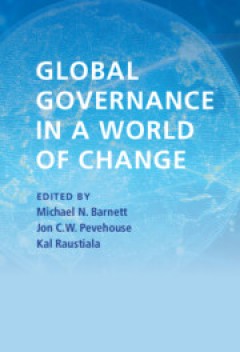
Global governance in a world of change
Global governance has come under increasing pressure since the end of the Cold War. In some issue areas, these pressures have led to significant changes in the architecture of governance institutions. In others, institutions have resisted pressures for change. This volume explores what accounts for this divergence in architecture by identifying three modes of governance: hierarchies, networks, …
- Edition
- -
- ISBN/ISSN
- 9781108915199
- Collation
- xii, 381 p. : ill.
- Series Title
- -
- Call Number
- 341.2 BAR g
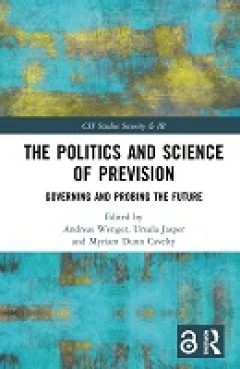
The politics and science of prevision : governing and probing the future
"This book inquires into the use of prediction at the intersection of politics and academia, and reflects upon the implications of future-oriented policymaking across different fields. The volume focuses on the key intricacies and fallacies of prevision in a time of complexity, uncertainty and unpredictability. The first part of the book discusses different academic perspectives and contributio…
- Edition
- 10
- ISBN/ISSN
- 9780367900748
- Collation
- xi, 272 p. : ill.
- Series Title
- -
- Call Number
- 320.6 WEN t
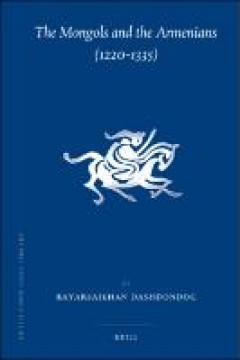
The Mongols and the Armenians (1220-1335)
In the thirteenth century, the Armenians of Greater Armenia and of the Armenian Kingdom in Cilicia were invaded by Mongol nomads of the Inner Asian steppe. The ensuing Mongol-Armenian relations were varied. The Greater Armenians became subjects of the Mongol Empire, whereas the Cilician Armenians, by entering into vassalage, became allies and furthered the Mongol conquests. In order to enhance …
- Edition
- -
- ISBN/ISSN
- 9789004186354
- Collation
- xiii, 267 p. : ill
- Series Title
- -
- Call Number
- 956.62014 DAS t
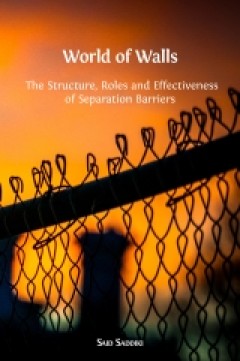
World of walls: the structure, roles and effectiveness of separation barriers
Borders have been drawn since the beginning of time, but in recent years artificial barriers have become increasingly significant to the political conversation across the world. Donald Trump was elected President of the United States while promising to build a wall on the Mexico border, and in Europe, the international movements of migrants and refugees have sparked fierce discussion about whet…
- Edition
- -
- ISBN/ISSN
- 9781783743704
- Collation
- 143 p. : ill. : ind. ; 24 cm
- Series Title
- -
- Call Number
- 304.8 SAD w
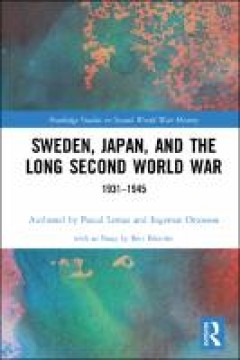
Sweden, Japan, and the long Second World War : 1931-1945
We thank Ekman & Co AB and Gadelius Holding Ltd for their kind and generous support, making this research available online for free. Lottaz and Ottosson explore the intricate relationship between neutral Sweden and Imperial Japan during the latter’s 15 years of warfare in Asia and in the Pacific. While Sweden’s relationship with European Axis powers took place under the premise of existenti…
- Edition
- -
- ISBN/ISSN
- 9781003182061
- Collation
- xiv, 235 p. : ill
- Series Title
- -
- Call Number
- 940.53254850952 LOT s
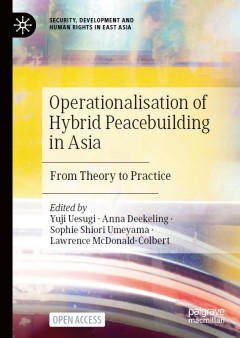
Operationalisation of hybrid peacebuilding in Asia : from theory to practice
This open access book explores common critiques in the literature of hybrid peacebuilding, especially the lack of connection between hybridity in theory and practice. Through using a complexity-informed framework, the foundation for introducing the mid-space actor typology is established. Mid-space actors as insider-partial mediators are perceived to be vital agents for peace processes in confl…
- Edition
- -
- ISBN/ISSN
- 9783030677589
- Collation
- xix, 203p. : ill.
- Series Title
- -
- Call Number
- 327.17209596 OPE o
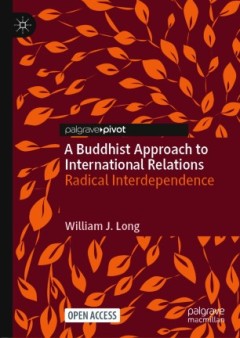
A Buddhist approach to international relations : radical interdependence
This book is an open access book. Many scholars have wondered if a non-Western theory of international politics founded on different premises, be it from Asia or from the “Global South,” could release international relations from the grip of a Western, “Westphalian” model. This book argues that a Buddhist approach to international relations could provide a genuine alternative. Because o…
- Edition
- -
- ISBN/ISSN
- 9783030680428
- Collation
- xi, 107p. : ill.
- Series Title
- -
- Call Number
- 327.101 LON b
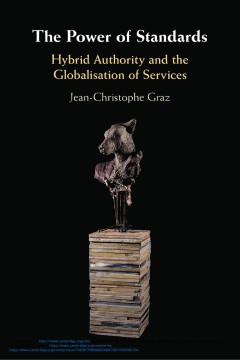
The power of standards : hybrid authority and the globalisation of services
Standards often remain unseen, yet they play a fundamental part in the organisation of contemporary capitalism and society at large. What form of power do they epitomise? Why have they become so prominent? Are they set to be as important for the globalisation of services as for manufactured goods? Graz draws on international political economy and cognate fields to present strong theoretical arg…
- Edition
- -
- ISBN/ISSN
- 9781108759038
- Collation
- x, 258p. : ill.
- Series Title
- -
- Call Number
- 658.562 GRA p
 Computer Science, Information & General Works
Computer Science, Information & General Works  Philosophy & Psychology
Philosophy & Psychology  Religion
Religion  Social Sciences
Social Sciences  Language
Language  Pure Science
Pure Science  Applied Sciences
Applied Sciences  Art & Recreation
Art & Recreation  Literature
Literature  History & Geography
History & Geography